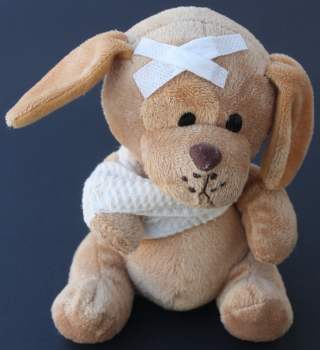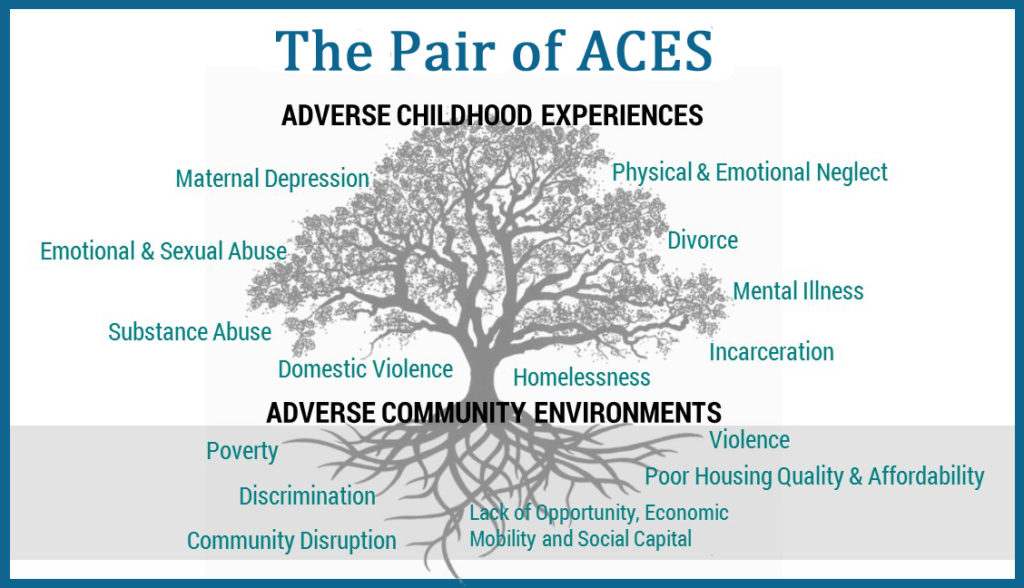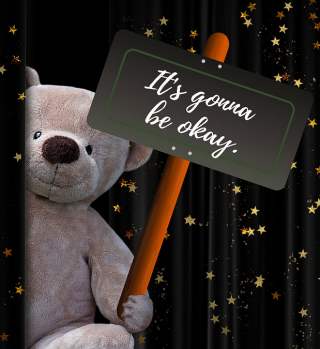Nicki Sindle, LPC-MHSP 615-498-5453 nsindle7@gmail.com
Adverse Childhood Experiences
The ACE (Adverse Childhood Experiences) study is one of the largest scientific research studies of its kind, with over 17,000 mostly middle- income Americans participating. The focus was to analyze the relationship between childhood trauma and the risk for physical and mental illness in adulthood. Over the course of a decade, the results demonstrated a strong relationship between the level of traumatic stress in childhood and poor physical, mental and behavioral outcomes later in life. The ACE Study is an ongoing collaboration between the Centers for Disease Control and Prevention and Kaiser Permanente.
According to the ACE Study site at the CDC, the ACE study shows the link between childhood trauma and the chronic diseases people develop as adults, as well as social and emotional problems. This includes heart disease, lung cancer, diabetes and many autoimmune diseases, as well as depression, violence, being a victim of violence, and suicide.
- Five are personal — physical abuse, verbal abuse, sexual abuse, physical neglect, and emotional neglect.
- Five are related to other family members: a parent who’s an alcoholic, a mother who’s a victim of domestic violence, a family member in jail, a family member diagnosed with a mental illness, and the disappearance of a parent through divorce, death or abandonment.
- Each type of trauma counts as one. So. a person who’s been physically abused, with one alcoholic parent, and a mother who experienced domestic violence, has an ACE score of three.
- To find out your ACE score take the ACE Questionnaire here or below.
ACE (Adverse Childhood Experiences) Questionnaire
There are 10 childhood traumas measured in the ACE score. For each question that you answered yes to below you will receive a point. The conclusions from the study showed that – the higher your ACE score the higher your risk of health, social, and emotional issues. Adults with a score of 4 or more points are at serious risk.
Prior to your 18th birthday:
1. Did a parent or other adult in the household often or very often… Swear at you, insult you, put you down, or humiliate you? or Act in a way that made you afraid that you might be physically hurt?
No___If Yes, enter 1 __
2. Did a parent or other adult in the household often or very often… Push, grab, slap, or throw something at you? Or- Ever hit you so hard that you had marks or were injured?
No___If Yes, enter 1 __
3. Did an adult or person at least 5 years older than you ever… Touch or fondle you or have you touch their body in a sexual way? Or – Attempt or actually have oral, anal, or vaginal intercourse with you?
No___If Yes, enter 1 __
4. Did you often or very often feel that … No one in your family loved you or thought you were important or special? or Your family didn’t look out for each other, feel close to each other, or support each other?
No___If Yes, enter 1 __
5. Did you often or very often feel that … You didn’t have enough to eat, had to wear dirty clothes, and had no one to protect you? or Your parents were too drunk or high to take care of you or take you to the doctor if you needed it?
No___If Yes, enter 1 __
6. Were your parents ever separated or divorced?
No___If Yes, enter 1 __
7. Was your mother or stepmother:
Often or very often pushed, grabbed, slapped, or had something thrown at her? or Sometimes, often, or very often kicked, bitten, hit with a fist, or hit with something hard? or Ever repeatedly hit over at least a few minutes or threatened with a gun or knife?
No___If Yes, enter 1 __
8. Did you live with anyone who was a problem drinker or alcoholic, or who used street drugs?
No___If Yes, enter 1 __
9. Was a household member depressed or mentally ill, or did a household member attempt suicide?
No___If Yes, enter 1 __
10. Did a household member go to prison?
No___If Yes, enter 1 __
Now add up your “Yes” answers: _ This is your ACE Score.
What is your ACE score?
It is never too late to get help and heal from childhood trauma. Using EMDR helps to process traumatic or distressing memories and experiences from the past, so that your nervous system and brain can let them go and you are no longer be triggered by them in the present. Working on the experiences from the past that caused you harm and emotional distress will help you to live a healthier/happier life as an adult. Even though we cannot go back and change what happened to you as a child, you can feel better in the present.
Start your healing process today, I believe you deserve to live your best life.
***It is important to note, that the ACE’s scale isn’t inclusive of every way that a person can experience trauma. It is simply another tool that implicates the way that unhealed wounds stay stored in our bodies, and show up in later life.
Pair of ACEs Tree Background:
The BCR Pair of ACEs tree image grew out of the need to illustrate the relationship between adversity within a family and adversity within a community. Adverse childhood experiences can increase a person’s risk for chronic stress and adverse coping mechanisms, and result in lifelong chronic illness such as depression, heart disease, obesity and substance abuse. Physical or sexual violence, and abuse or neglect are often less obvious but can exist as chronic stressors. The tree is planted in poor soil that is steeped in systemic inequities, robbing it of nutrients necessary to support a thriving community. Adverse community environments such as a lack of affordable and safe housing, community violence, systemic discrimination, and limited access to social and economic mobility compound one another, creating a negative cycle of ever worsening soil that results in withering leaves on the tree.




